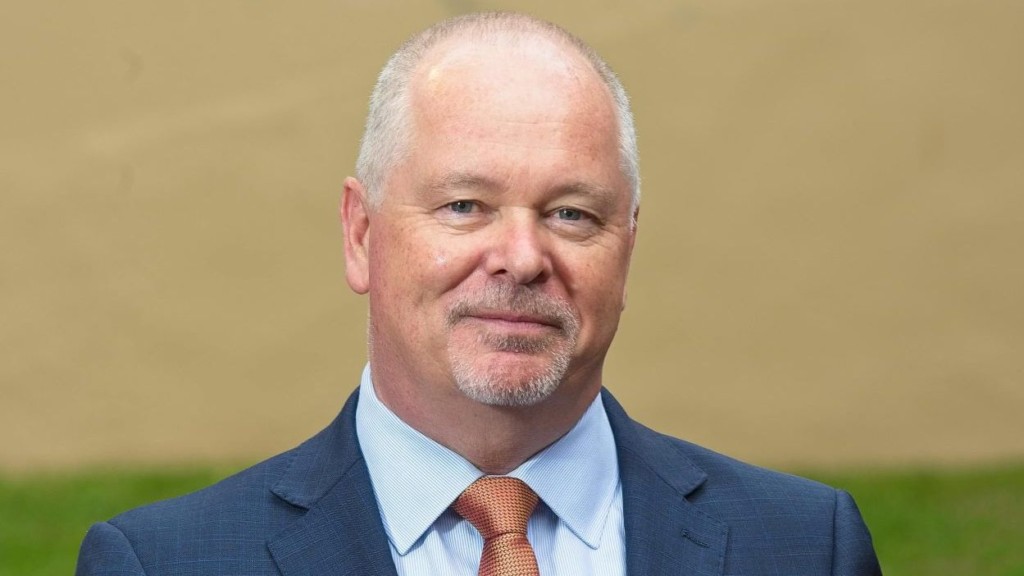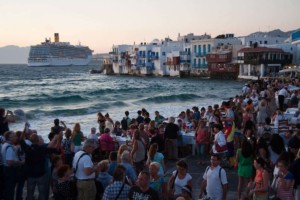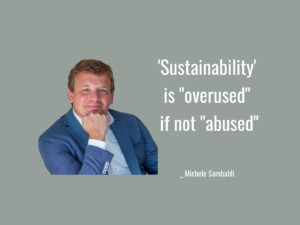The cause of overtourism & how tourism can avoid choking on success

World Tourism Association for Culture & Heritage (WTACH) President & CEO Chris Flynn weighs in on the overtourism discussion in this “Good Tourism” Insight. Mr Flynn identifies the cause of overtourism and how the tourism industry might avoid more of it.
We are hearing more and more about “overtourism” and the negative impact it is having on destinations and, sadly, the social fabric of the communities that dwell in the towns, cities, and countries affected. But overtourism and its calamitous consequences have been unwelcome symptoms of tourism for a very long time.
There are many factors that contribute to the series of bottlenecks we now refer to as overtourism: The cheaper cost of travel; over-development or under-development and a mismatch with capacity; misguided or, more accurately, misunderstood planning and investment … I can go on.
Surely there must be a fundamental cause of overtourism. And, if so, what is it?
In my opinion the fundamental cause of overtourism is the misguided view that ‘more’ is always better. And flawed key performance indicators (KPIs) at the public policy level is evidence of that.
Increasingly we are seeing those who have little, if any, experience in tourism placed in charge of managing essential processes designed to promote destinations and deliver visitors to our shores. These tend to be relatively high-profile political and public service positions that provide an opportunity to ‘make your mark’. I suppose there’s nothing wrong in that except where results are judged purely by arrival numbers.
KPIs versus carrying capacities
Today we live in a KPI society; a fictional mindset where it’s believed the more we produce the better we must be. Key performance indicators are designed to monitor our work effort, contribution, and loyalty to the cause; and of course, our value to the business. KPIs sit upon our shoulders weighing us down with the question “Am I good enough?”
KPIs are a formalisation of the old “If you scratch my back, I’ll scratch yours” agreement. They make those higher up the chain, those we report to, look better in the eyes of those they report to. And there’s always someone out there seeking to look better than they actually are.
And therein lies the problem: KPIs are short-term targets. There are no long-term visions or thought processes associated with them. It’s all about NOW! Instant coffee, if you will. KPI-driven outcomes are left for some other unsuspecting mug to clean up the mess and pick up the pieces.
When you apply KPI thinking to tourism it just doesn’t work. For a start there needs to be a plan and that plan should take into account just how much a town, city, village, museum, art gallery, can take … before it breaks!
That’s called “carrying capacity”.

A tourism development and management plan should, by design, have the ability to measure and monitor the performance of a place in terms of visitor arrivals with reference to carrying capacity. Carrying capacity helps destination managers understand what infrastructure, resources and investment are needed to cope. When it becomes clear that things are going to get tight, decisions can be made one way or the other.
Sounds like a practical idea to me! So why are carrying capacity studies hardly ever done? It all comes back to KPIs. Neither a tourism department head nor the Minister they report to will stay in these positions long enough to see the potential damage their short-sighted decision-making creates, nor the impact and challenges faced by communities that must deal with the consequences. Don’t believe me? Click here.
Let’s be clear about this: Growth without a plan is a recipe for disaster and one we are seeing rise to the surface at alarming levels. This is tourism’s ‘plastic in the ocean’ problem. It is a critical issue that’s been developing for years but has been conveniently ignored or brushed under numerous carpets until now … when it’s become too big to hide.
So, what are we going to do about it?
Well that, my friends, is the $1.8 billion question and the reason we established the World Tourism Association for Culture and Heritage (WTACH). Someone had to do something to bring a halt to this madness — the idea that ‘growth at all costs’ is the way to a better future — and to change the thought processes driving some of our most precious destinations and cultures to extinction.
So we must change the way we think; the way we do things; the way we measure success. Because if we don’t, we will inevitably end up choking on our own success. And the damage will be irreversible.
Featured image: Tourist-go-home messages are getting louder and more frequent as overtourism becomes a problem too big to ignore. Image by Duncan Hull (CC BY 2.0) via Flickr.
About the author

Chris Flynn is President & CEO of the World Tourism Association for Culture & Heritage (WTACH). With 34 years’ experience across four continents, Chris has acquired an intimate knowledge of the global tourism industry and is often invited to speak at the biggest industry events and contribute his insights to leading news media such as BBC World (and The “Good Tourism” Blog ;-)). Leading Australian and international universities have also sought Chris’ advice on course content.





